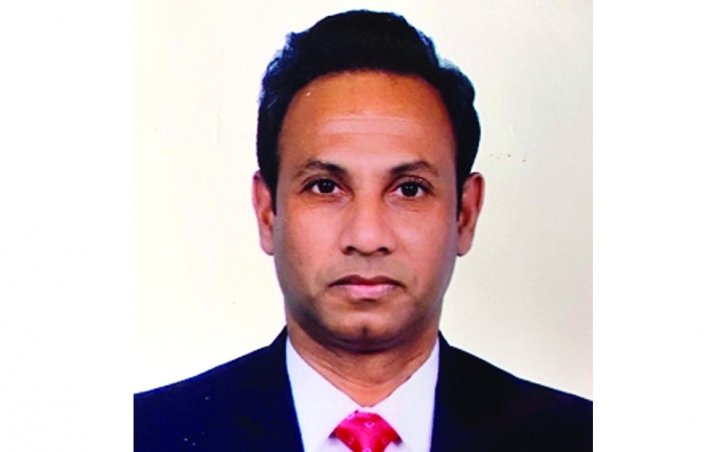
Dhaka, the capital city of Bangladesh is the most polluted city on the list of the cities worldwide with the worst air quality yesterday morning. With an AQI score of 168 at 1.42 afternoon on December 28, Dhaka's air was classified as 'very unhealthy', according to the air quality index. Mysteriously, nobody is bothered by the continuous devastating air pollution in the capital, and everybody is going outside without protection of pollution, which may cause severe health disorders including death.
According to the Air Quality Index (AQI), Air pollution has caused an estimated 26,000 deaths in Dhaka in 2023 to date.
Air pollution is responsible for about 20 per cent of the total premature deaths in Bangladesh, says a World Bank report titled 'Striving for Clean Air: Air Pollution and Public Health in South Asia.'
The report claimed that air pollution causes an estimated two million premature deaths each year and inflicts significant economic costs in South Asia.
As per the World Health Organization (WHO), air pollution kills an estimated seven million people worldwide every year.
Due to air pollution in Bangladesh, increased mortality from stroke, heart disease, chronic obstructive pulmonary disease, lung cancer and acute respiratory infections.
Air pollution consistently ranks among the top risk factors for death and disability worldwide. Breathing polluted air has long been recognised as increasing a person's chances of developing chronic diseases.
When talked to the officials of the Department of health, they said they have no data on how many people die from air pollution annually in Bangladesh. Not only that, the health department also never assessed how many people were breathing unhealthy air, which caused them to feel sick.
In Dhaka, the concentrations of fine particulate matter such as soot and small dust (PM2.5) in some of the region's most densely populated and poor areas are up to 20 times higher than the WHO standard (5 µg/m?). At present, the city dwellers in every area burdened with polluted air, witness a surge in dust in the air.
The High Court issued three-point instructions to the director general of the Directorate of Fire Service and Civil Defense to take necessary measures to sprinkle water at various points in Dhaka to save the people from pollution caused by dust in February 2021. The city corporations were also asked to spray water on the streets of Dhaka to clean the dust accumulated on roads and on small trees on the side of the road. The court also ordered the Dhaka WASA to supply water to two city corporations in case of water shortage. But, the court's instruction is yet to be implemented effectively. In this context, Dhaka city now became a 'dust factory'.
This is a common sight on almost all roads in Dhaka that exacerbated by road digging works done by Dhaka WASA, Dhaka Power Distribution Company (DPDC), Bangladesh Telecommunications Company Ltd (BTCL), and the two City Corporations.
When visited several areas of Dhaka North City Corporation (DNCC) including Mirpur, Gabtali, Mohammadpur, Pirerbagh, Kafrul, Mohakhali, Tejgaon, Badda, Shahjadpur, Gudaraghat, Uttarkhan, Dakshinkhan, and Harirampur, and found that a large portion of the roads in these areas are covered in dust. The same sceneries saw in the areas of the Dhaka South City Corporation (DSCC) including the Dhanmondi, Shahbagh, Lalbagh, Babubazar, Chawkbazar, Kadamatoli, Gendaria, Gopibagh, Jatrabari, Bangshal, Nazirabazar, Free School Street, Green Road, Meradia, Motijheel, Shantinagar, Azimpur, and Newmarket are also covered in dust. In 2019, Dhaka came in with a PM2.5 reading of 83.3 ?g/m³ as the yearly average, putting it in the 'unhealthy' bracket of air quality, which requires a PM2.5 reading between 55.5 to 150.4 ?g/m³ to be classed as unhealthy.
This year average reading of 83.3 ?g/m³ was enough to put Dhaka in 1st place out of all cities in Bangladesh as well as most polluted city worldwide.
With a large amount of its pollution coming from vehicles, industries and construction sites, Dhaka would be subject to some extremely dangerous pollutants finding themselves into its atmosphere. Materials such as black carbon and volatile organic compounds are all released in copious amounts from the use of fossil fuels such as diesel in coal, present in vehicles and factories alike, as well as arising from the aforementioned open burn sources.
The brick kilns would produce vast amounts of their own smoke and haze, containing other compounds such as carbon monoxide (CO) and ozone (O3). The large amounts of dust given off by poorly maintained construction sites would contain a variety of PM2.5 and PM10, such as silica dust, or finely ground soil or gravel particles, all of which can cause a number of long-term health effects when respired.
As touched on previously, pollution levels start to show considerable rises in the month of October, coinciding with the end of monsoon season and as such lacking the necessary rain that is always helpful in cleaning a cities air and washing away its fine dust particles.
September saw a PM2.5 reading of 37.7 ?g/m³ in 2019. This jumped up significantly in October to 64.6 ?g/m³, and increase of nearly twofold. These numbers continued to rise until they hit their absolute peak in January, with a reading of 181.8 ?g/m³ being present.
With air pollution levels this bad, preventative measures become vital for Dhaka's citizens, with the avoidance of outdoor activities as well as the wearing of fine particle filtering masks being highly necessary. After the peak in January, pollution levels still remained extremely high but showed a steady drop, with a reading of 145.7 ?g/m³ in February, followed by 107.4 ?g/m³ in March. These numbers continued to drop until reaching the cleanest months of the year, June through to September, with August coming in with the cleanest reading of the year at 31.3 ?g/m³.
In order to reduce such elevated levels of pollution, many steps would need to be taken, albeit in the face of such economic growth it would a task that the city of Dhaka would be hard pressed to do. The introduction of stricter regulations regarding fuels and vehicles allowed on the road would be helpful in the fight against reducing ambient pollution levels in the air, with the removal of diesel fuel as well as ancient fume producing engines being of large help.
Other steps would be to introduce stricter measures to both factories and construction sites, holding individual organizations accountable for the amount of pollution that they produce, with the possibility of adding fines to those that exceed unsafe levels of pollution, as well as particulate matter. Whilst certainly a compounded issue, the introduction of these initiatives would be a step in the right direction for Dhaka to obtain a cleaner level of air quality, and improve its US AQI readings as well as PM2.5 levels.
The authorities concerned have recommended to avoid outdoor exercise, close windows to avoid dirty outdoor air, wear a mask outdoors and run an air purifier in the residents.
Air pollution consistently ranks among the top risk factors for death and disability worldwide. Breathing polluted air has long been recognised as increasing a person's chances of developing heart disease, chronic respiratory diseases, lung infections and cancer, according to several studies.
As per the World Health Organization (WHO), air pollution kills an estimated seven million people worldwide every year, largely as a result of increased mortality from stroke, heart disease, chronic obstructive pulmonary disease, lung cancer and acute respiratory infections.
The writer is editor and publisher of The South Asian Times. He can be reached at deeditu@gmail.com





































